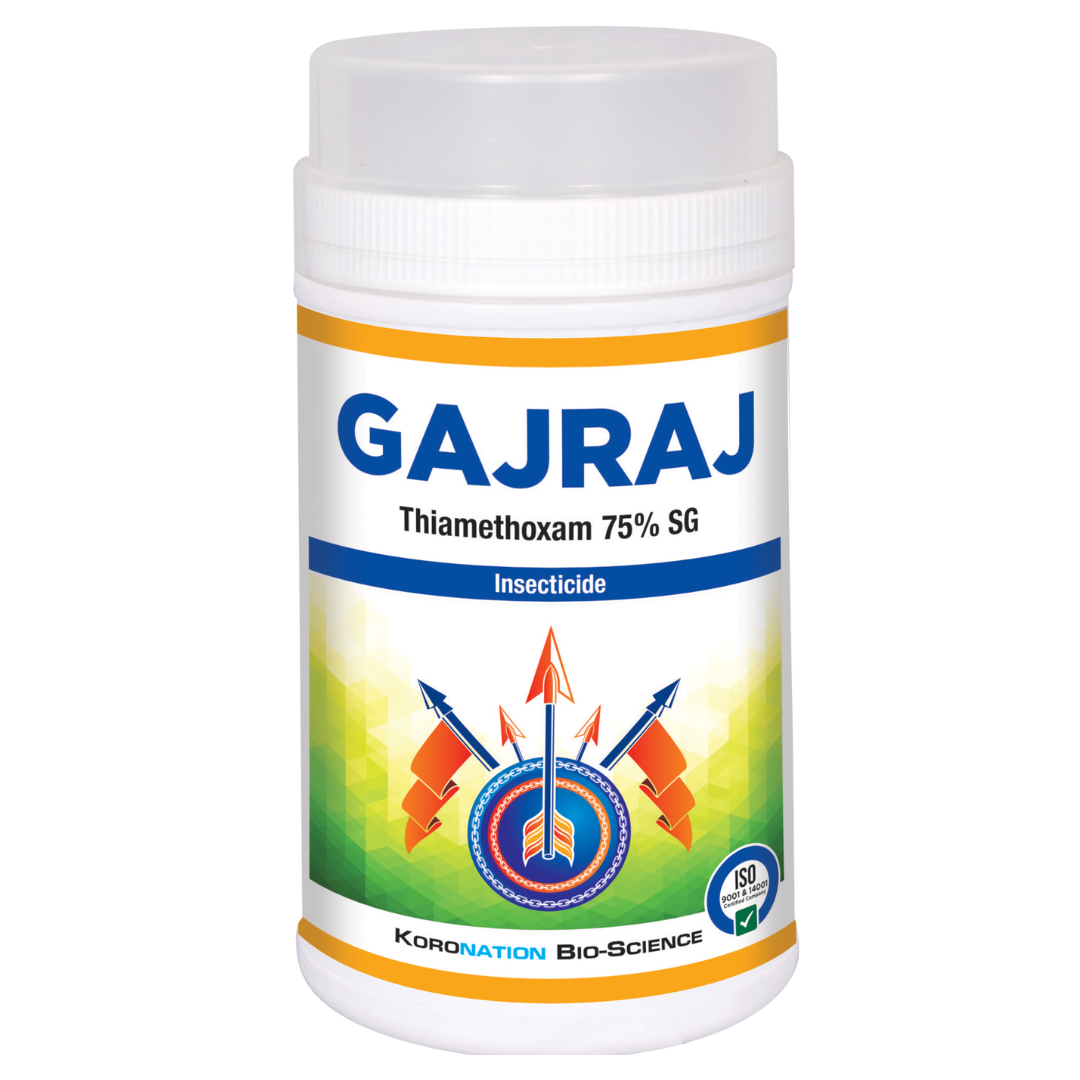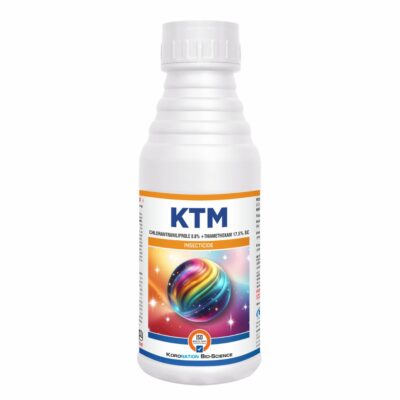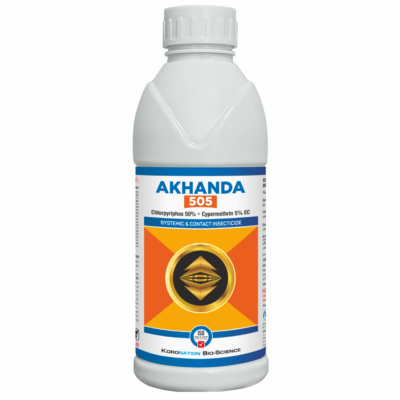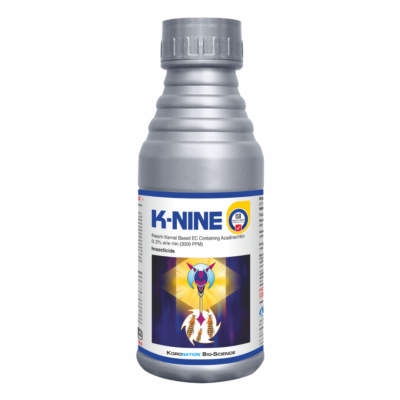Chemical Composition:
Thiamethoxam a.i. 75.0 % w/w
Wetting and dispersing agents: %
Sodium N-methyl-N-oleoyl taurate 1.5 % w/w
Sodium alkyl naphthalene sulfonate 1.0 % w/w
Antifoam: %
Silicone oil (polydimethylsiloxane) 0.5 % w/w
Carriers: %
Urea, polymer with formaldehyde 0.5 % w/w
Starch 4.0 % w/w
Lactose anhydrous Q.S. %
Total: 100.000% w/w
Recommendation
| Crop(s) | Common Name of Pest | Dosage/HA | Dilution in Water | Waiting Period between last spray to harvest | Re-entry after each Applicatio n (In Hours) | |
| AI | Formulation | |||||
| Cotton | Jassids & Thrips | 94 | 125 | 50-100 ml/Plant | 109 | – |
| Sugarcane | Termite & Early shoot borer | 120 | 160 | 500-1000 | 230 | – |
| Rice | Green leaf hopper and Brown plant hopper | 113 | 150 | Dissolve in 500 ml water and mix with 20 kg sand/h | 60 | – |
| Groundnut | Termite | 94 | 125 | 500-1000 | 57 | – |
Direction of Use
Direction for use in Groundnut, Sugarcane & cotton: Measure out required quantity of the product and mix it well with a small quantity of water. Add the remaining quantity of water as specified with thorough agitation and apply as soil drenching in crops.
Direction for use in Rice: Measure out required quantity of the product and dissolve in 500ml of water to make solution for mixing and broadcasting with sand @20 kg/ha.
Time of Application
It contain 750 g Thiamethoxam as an active ingredient in one kg of the product.
Precaution:
Do not use cooking utensils for preparing solutions. Use sticks for stirring the solution. Wear gloves to avoid contact with the skin. Also avoid inhalation and contact with eyes. Wear protective clothing, mask, goggles, boots while preparing the solution. Do not blow nozzles with mouth. Do not eat, drink or smoke while handling or applying the product. Do not store unused solution. Clean sprayer, buckets and other utensils with water daily after use. Wash hands with soap and plenty of water and change clothes after the work is over. Also wash the contaminated clothes.
Do not allow drifting onto rivers, lakes, ponds ditches or other waterways. Do not allow discharging left over applied material or empty containers to contaminated waterways.
The product should not be applied during flowering of the crop. Do not use the product where bees are actively foraging.
Do not allow drift to flowering weeds, hedges or flowering crops in the vicinity of the treatment area. Do not apply if a high amount of aphids honeydew is present in the treatment area. Do not apply on flowering crops between 5 days before start of flowering and 5 days after flowering.
In case of any sign of poisoning immediately consult the doctor.
Symptoms Of Poisoning:
Poisoning may cause symptoms of decrease in spontaneous movement, toxic to convulsion and ptosis.
First Aid
Remove the affected person from the danger zone to a well-ventilated rooms or to fresh air and protect from undercooling. In case of suspected poisoning: Immediately call a physician. In case of skin contact: remove contaminated clothing and thoroughly wash the affected parts of the body with soap and water. In case of eye contact: Rinse eyes with clean water for several minutes and immediately call a physician. In case of ingestion: Repeatedly administer medicinal charcoal in a large quantity of water. Note: Never give anything by mouth to an unconscious person. Do not induce vomiting.
Phytotoxicity
Non phytotoxic when used as recommended.
Antidote
No specific antidote is known. Apply symptomatic therapy.
Disposal Of Used Container
- Packages or surplus material and washings from the machines and container should be disposed off in a safer manner so as to prevent environment pollution.
- The used packages shall be not left outside to prevent their re-use.
- Packages shall be broken and buried away from habitation.
Storage Conditions
- The packages containing the insecticides should be stored in original container in separate rooms or premises away from the rooms or premises used for storing other articles, particularly, food or shall be kept in separate almirahs under lock and key.
- The rooms or premises meant for storing the insecticides shall be well lit, dry, well lit and ventilated and of sufficient dimensions to avoid contamination with vapors.







There are no reviews yet.